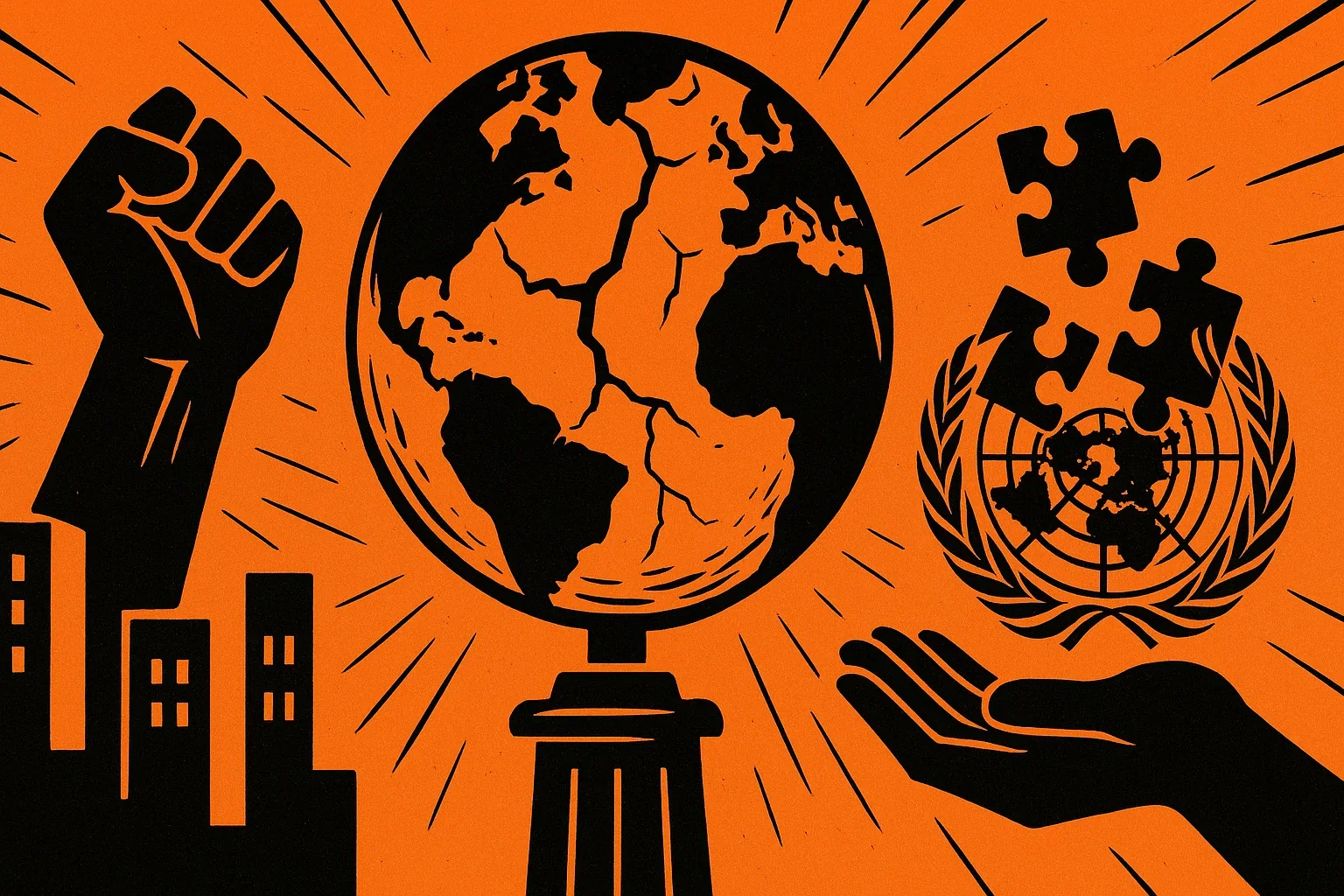For years now, the world has been undergoing an unprecedented wave of transformation: the West, which led the international system for three decades, is no longer as powerful as it once was, and rising powers like China, India, Brazil, Turkey and Saudi Arabia no longer accept the role of "follower." As we enter 2025, the international arena seems to stand on the brink of a historic crossroads: are we witnessing the beginning of the collapse of the liberal order, or are we at the moment of a multipolar world reshaping?
The study begins by noting that global output has changed drastically: Developing economies accounted for only 25% of the global economy in 2000, but by mid-2020 they were approaching 45%. The expanding BRICS+ bloc now includes countries accounting for 40% of global output, ahead of the Western G7. This shift alone is enough to explain why the West is no longer able to control the international system as it once did.
But it doesn't stop there: India is leading the "Voice of the Global South," China is expanding the Belt and Road to more than 140 countries, and BRICS is creating new payment systems and increasing local currencies. Even South-South trade levels have increased tenfold since the 1990s, accounting for one-third of global trade.
The Ukraine war redefined its security and prompted it to raise its defense spending to unprecedented numbers: its total defense spending reached 326 billion euros in 2024, while countries like Poland jumped to 4 percent of its GDP, the highest in NATO.But Europe remains divided between the "hawks of the East" and the "doves of the West," and this divide will determine the future of its international role.
At the same time, the old international institutions are suffering from an unprecedented erosion of legitimacy: the Security Council is paralyzed by vetoes, the UN is funded with less than 38% of its humanitarian needs for 2023, the IMF is still accused of imposing onerous conditions, and the WTO has been paralyzed since 2019.
Big tech companies-from Meta to Google and Starlink-have come to wield more influence than entire governments. Daily cyber campaigns, war-changing satellites, and an artificial intelligence race with no clear rules...It is a new international arena where private power intersects with public sovereignty, redrawing the rules of influence and power.
After this review, the study presents three scenarios for the future of the international system:
The disintegration scenario: the world slips into 1930s-style chaos, with failing institutions, trade wars, and unchecked conflicts.
Reconfiguration Scenario: An organized multipolar system, with a reformed Security Council and an expanded G20, with major understandings between America and China.
Hybrid scenario (most likely): Neither collapse nor overhaul, but a gray world that combines an old system that is eroding and new structures that are forming in parallel ... a world of "selective cooperation" and controlled competition.
The study concludes that the world today is witnessing an orderly demise of Western hegemony, but it is not necessarily entering chaos. We are in a time of transition, with the old order faltering and a new order being built drop by drop, through new alliances, rising powers, and game-changing technologies.
The future is not yet written, but it will depend on the ability of major powers - Western and emerging - to avoid the "zero-sum" mentality and build common rules that ensure security and prosperity for all.
To view the video and read the full analysis paper, please scroll down.
The international order after 2025: Is the liberal order disintegrating or reshaping?
In a world that changes at the speed of light, nothing remains constant... except the fact that those who don't adapt will be swept away.

Comments